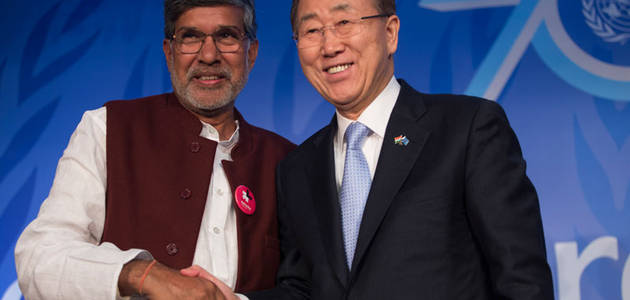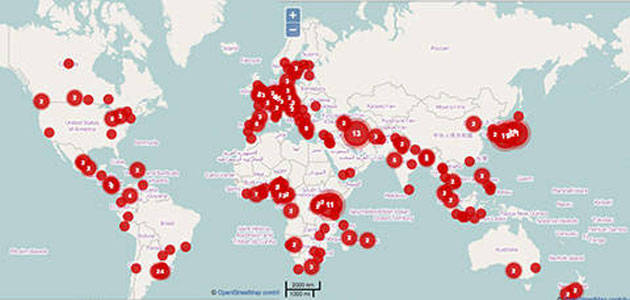News
-
04.05.17
-
04.05.17
-
03.05.17
-
03.05.17
-
03.05.17
Higher education key for achieving SDGs in East Africa and the Indian Ocean
The role policy plays in enabling mobile learning for displaced people
A Policy Forum was held to wrap up Mobile Learning Week which took place in Paris from 20 to 24 March. The Forum examined the role policies play in facilitating the acquisition of e-skills, particularly for disadvantaged and displaced populations. It brought together ministers of education and ministers of ICT to talk about the changing skills required in societies that are increasingly dependent on digital technologies. UNESCO Assistant Director-General for Education Qian Tang opened the Forum where participants discussed how e-skills could enable learning that advances progress towards the 2030 Agenda for Sustainable Development, including in contexts of emergencies and crisis.
At the Forum organized in collaboration with ITU and UNHCR, different sessions ranging from how countries can expand mobile learning and how e-skills contribute to socio-economic inclusion were took place. Christos Stylianides, European Commissioner for Humanitarian Aid & Crisis Management said: “Educational technology can bring us closer to each other and make us understand each other: we are advocating that education in emergencies becomes a collective priority. Ministers of Education and Technology from different countries including Turkey, South Sudan, the Democratic Republic of the Congo, the United Arab Emirates, Gabon, Macedonia and Finland shared ideas and different approaches.
Obstacles to education in emergencies remain, including funding and prioritizing learning in humanitarian aid. “I personally committed to increase by four times the E.U. support to this cause, and set aside 4% of our annual humanitarian budget for education in emergencies and crises in 2016,” Mr Stylianides said. However, private sector partnerships and funding remain key to increasing the quality and reach of mobile learning.
The public-private sectors partnerships on e-skills and mobile learning were also discussed, along with the roles that national authorities, mobile network operators and technology companies play in the development and provision of e-skills programs.
The question of how countries can ensure that new mobile technologies supports inclusion and equity in education was mirrored during many discussions that happened throughout Mobile Learning Week. As one young refugee said in an address earlier in the week, displaced people can become the drivers of their future as they usually leave their countries with existing knowledge and skills, and mobile learning gives them an opportunity to continue the path to education. “Refugees did not choose to be where they are,” said Ella Ininahazwe, a Burundian refugee and Kepler University student. “Let us give them what they did not expect to find there.”
Mobile Learning Week offered tools to account for many displacement challenges, from enabling people on the move to continue learning to supporting teacher training, to helping refugees’ transitions into national education systems.
Mobile Learning Week was designed to help global knowledge sharing and develop solutions that can be scaled to strengthen inclusion in education and keep the cycle of learning in emergencies. It presented diverse initiatives and collaboration between actors across different sectors of society. Participants, whether national ministers of education or workers at a grassroots NGO, can return to their countries with plans and solutions toward successfully integrating mobile technologies to aid education in crises.
VIDEO
EVENTS
- UNESCO-UNEVOC virtual conference on youth and skills, UNESCO Paris, 25 June - 9 July 2013
- Holocaust education and intercultural understanding in South-East Europe UNESCO Venise , 3-4 July 2013
>> All events



